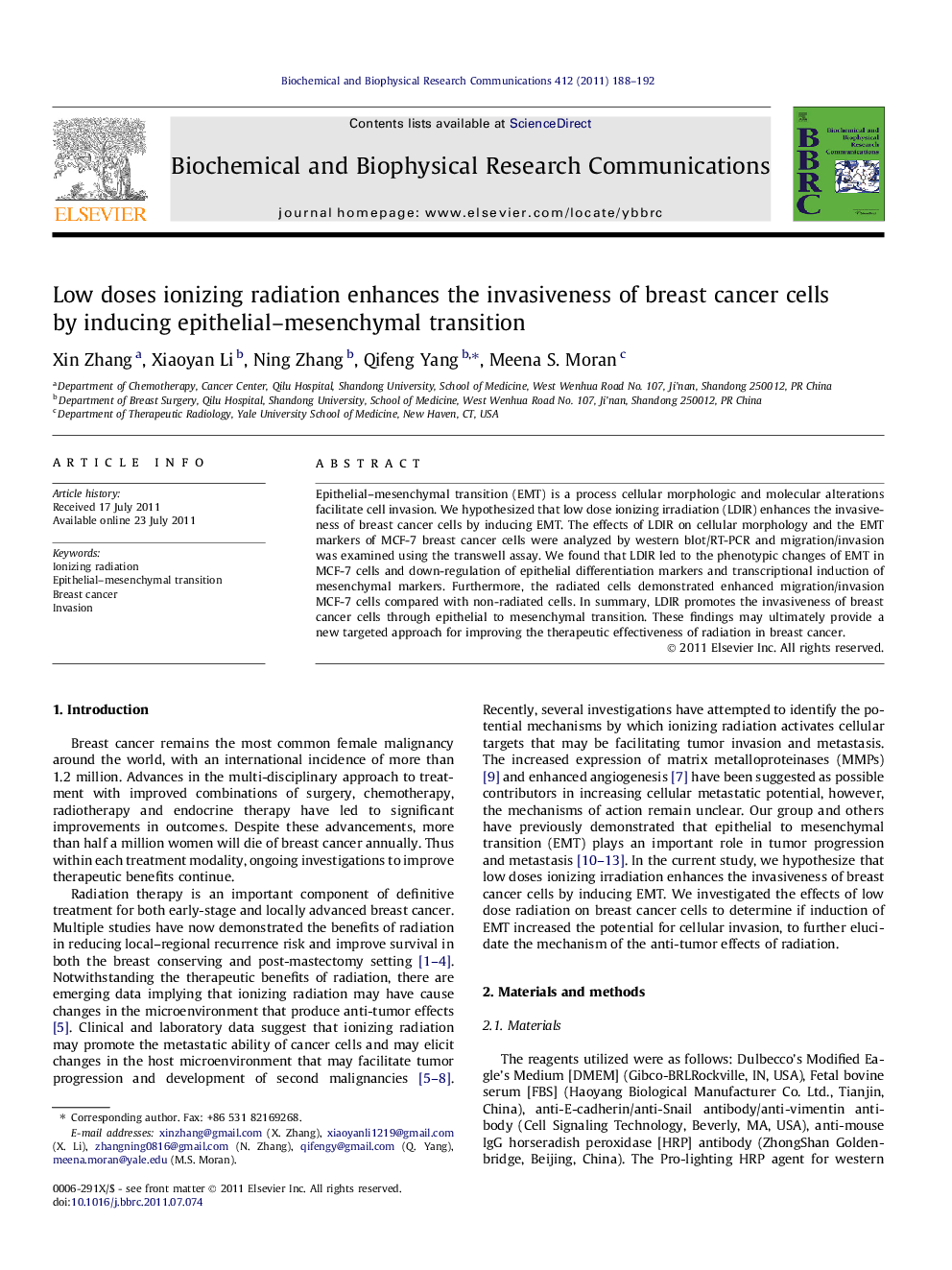| Article ID | Journal | Published Year | Pages | File Type |
|---|---|---|---|---|
| 1930318 | Biochemical and Biophysical Research Communications | 2011 | 5 Pages |
Epithelial–mesenchymal transition (EMT) is a process cellular morphologic and molecular alterations facilitate cell invasion. We hypothesized that low dose ionizing irradiation (LDIR) enhances the invasiveness of breast cancer cells by inducing EMT. The effects of LDIR on cellular morphology and the EMT markers of MCF-7 breast cancer cells were analyzed by western blot/RT-PCR and migration/invasion was examined using the transwell assay. We found that LDIR led to the phenotypic changes of EMT in MCF-7 cells and down-regulation of epithelial differentiation markers and transcriptional induction of mesenchymal markers. Furthermore, the radiated cells demonstrated enhanced migration/invasion MCF-7 cells compared with non-radiated cells. In summary, LDIR promotes the invasiveness of breast cancer cells through epithelial to mesenchymal transition. These findings may ultimately provide a new targeted approach for improving the therapeutic effectiveness of radiation in breast cancer.
► Low doses ionizing irradiation would enhance the invasiveness of breast cancer cells by inducing EMT. ► Low doses ionizing radiation induced morphologic changes in breast cancer cells. ► Low doses ionizing radiation led to upregulation of mesenchymal markers and down-regulation of epithelial markers. ► Low doses ionizing radiation increased migration and invasion of breast cancer cells.
